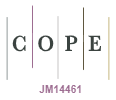Educational policies in Portugal: governance, local context and hybridity
DOI:
https://doi.org/10.5585/eccos.n42.3606Keywords:
Centralisation. Decentralisation. Governance. Market. Neoliberalism.Abstract
Decentralisation coincides with the emergence of new types of state governance that, from the 1980s, is held by governments which are influenced by neoliberalism. This process affects different political contexts, and in the case of education it aims to reduce the power of teachers and it increases the power and performance of the feudatories – municipalities – and the system users – the students’ parents. Thus, since 1998, local authorities are now facing the possibility of greater involvement in education, ie, with the establishment of an organ of democratic participation (CLE) in the preparation of a guidance document (letter school) and the opportunity to participate in the administrative management of schools (School Assembly). However, the central government performance is nothing else than translates a process of “push and pull” between decentralisation, centralisation, market and governance.
Downloads
Downloads
Published
How to Cite
Issue
Section
- Abstract 520
- PDF (Português (Brasil)) 528






